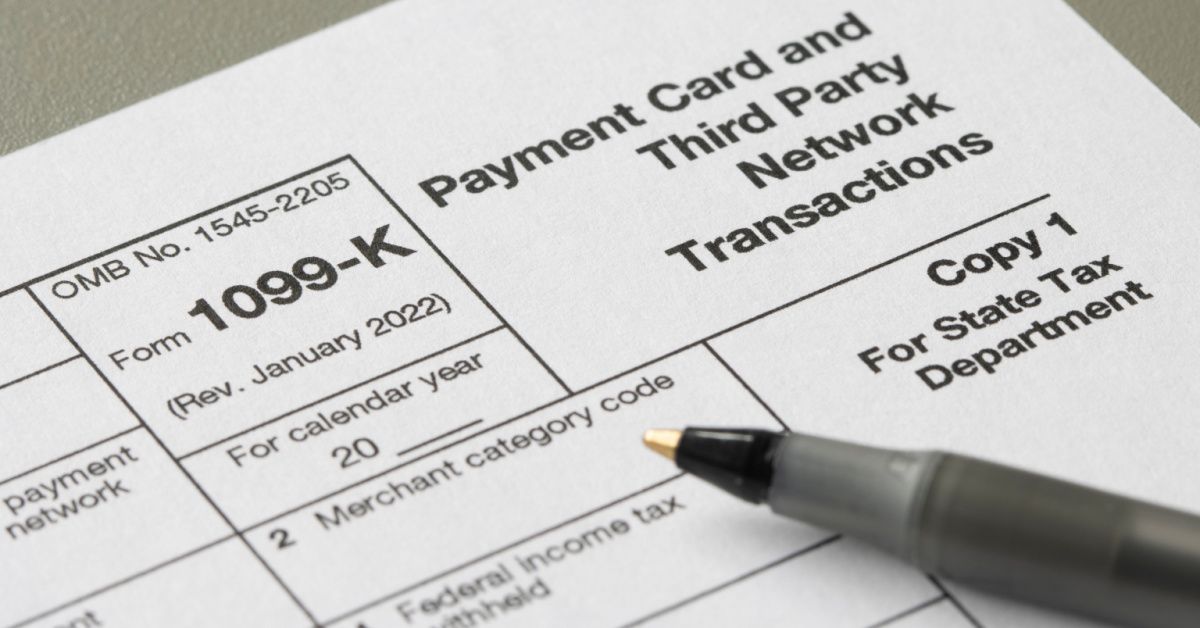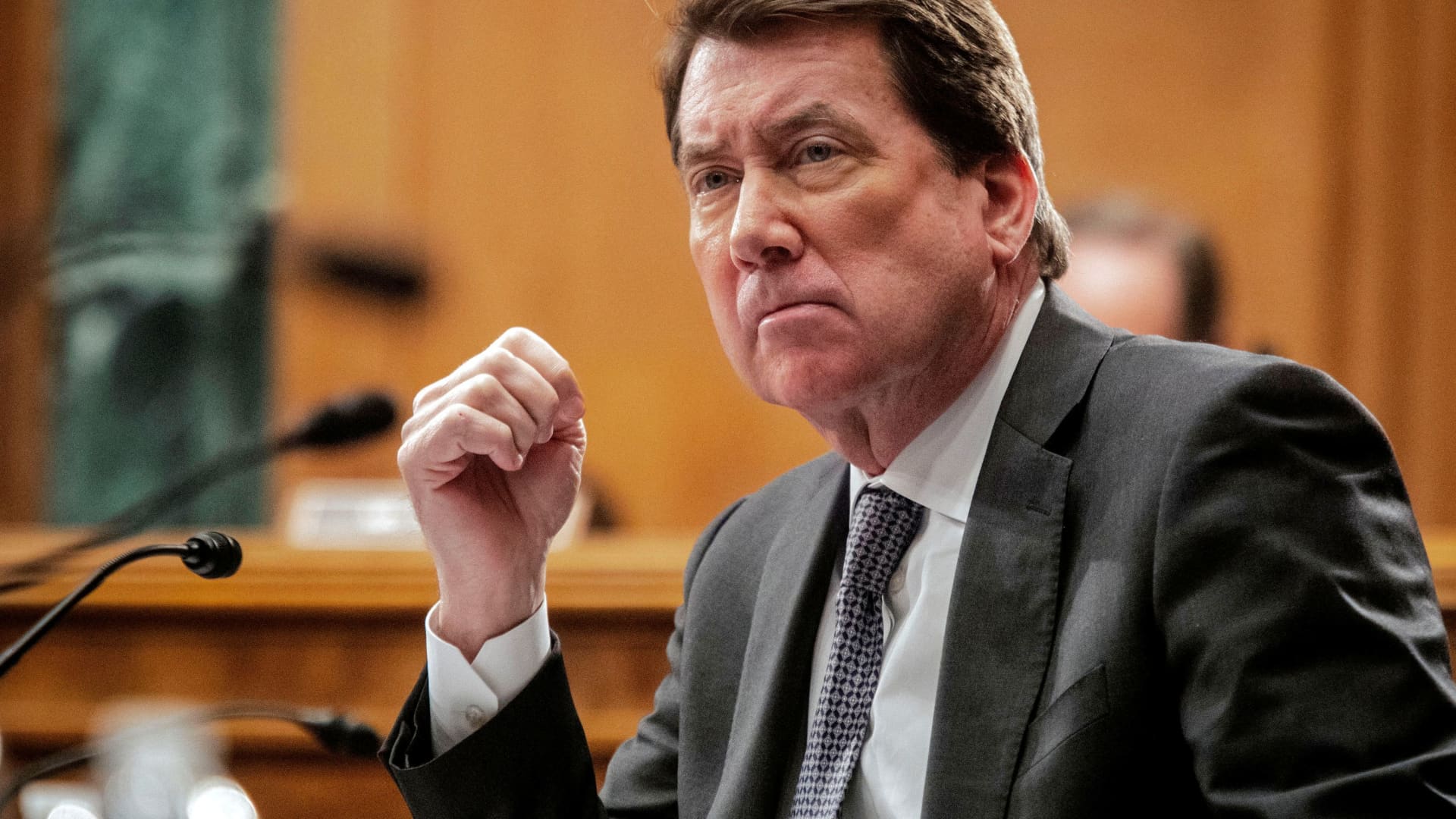Legislators Try To Tackle 1099-K Issues In Omnibus Bill Amendments
UPDATE 12-23-22
Efforts to raise the 1099-K threshold may have failed to make it in the Omnibus bill, but the IRS has bowed to pressure and will be delaying implementation of the $600 threshold until 2024.

UPDATE: The Omnibus Bill has passed the Senate, but it appears none of the proposed amendments to address the 1099-K threshold made the final cut.
That leaves the $600 threshold per the American Rescue Plan in place with little likelihood it will change any time soon.
As the Senate moves forward with the FY23 Omnibus bill, some lawmakers are trying to use the opportunity to address the lowering of the 1099-K threshold that was introduced as part of the American Rescue Plan of 2021.
Sen. Bill Hagerty, R-TN and Sen. Joe Manchin, D-WV said they planned to file an amendment to the $1.7 trillion spending package to increase the threshold for Form 1099-K.

In an exclusive interview with CNBC, Manchin said the amendment would increase the payment threshold to $10,000 from $600 for the 2022 tax season.
Before 2022, taxpayers received 1099-Ks with more than 200 transactions worth an aggregate above $20,000. But the American Rescue Plan Act of 2021 dropped the threshold to just $600. Currently, even a single transaction of more than $600 may trigger the form.
“This is the best relief we can get for people,” said Manchin, referencing the $10,000 threshold as “the best way to approach it.”
He believes that raising the threshold to $10,000 has broader support than delaying implementation of the new rule.
Meanwhile, Senator Shelley Moore Capito, R-WV, is proposing to delay implementation of the $600 threshold for one year to allow time to consider other solutions.

WASHINGTON, D.C. – Today, U.S. Senator Shelley Moore Capito (R-W.Va.) introduced an amendment to the Fiscal Year 2023 omnibus package to delay the implementation of the tax scheme in the Democrats’ American Rescue Plan that lowers the threshold for Americans to receive a 1099-K form from the Internal Revenue Service (IRS) for one year.
“Today I offered yet another solution to the drastic changes to 1099-K reporting requirements included in the Democrats’ American Rescue Plan. Democrats rushed these new requirements into law, without any deliberation or stakeholder input that would help the IRS further audit and track tens of millions of Americans’ transactions. This delay would give Congress time to hear from payment processors, platform sellers, small business owners, and tax preparers, and find the right solution to the problem created by my Democrat colleagues and the American Rescue Plan. Absent this delay, this tax filing season is guaranteed to be a paperwork and compliance nightmare, both for taxpayers and the IRS,” Senator Capito said.
Capito's amendment received support from the National Taxpayer Union and Americans For Tax Reform.
"National Taxpayers Union welcomes Senator Capito's one-year delay of the significant new reporting requirements under Section 1099-K for taxpayers participating in the digital economy. The American Rescue Plan Act lowered the 1099-K reporting threshold from $20,000 and 200 transactions, where it had been for over a decade, to $600 and just one transaction starting this year. Lawmakers now have an opportunity to delay the deluge of paperwork and taxpayer confusion that will result from this policy starting in January, which also buys time to reach a bipartisan solution raising the threshold. Congress should quickly pass this one-year delay before they go home for the holidays,” Andrew Lautz, National Taxpayer Union Director of Federal Policy, said.
“Biden and Democrats thought they could come after Americans’ PayPal and Venmo transactions without anyone noticing. People noticed. This amendment will prevent millions of taxpayers with more than $600 in transactions from third-party vendors from being told by Biden’s IRS that they have a new tax liability this year. Sen. Capito’s amendment will give Republicans an additional year to restore the previous threshold and stop Democrats from targeting Americans’ PayPal and Venmo payments,” Grover Norquist, President of Americans for Tax Reform, said.
eBay CEO Jamie Iannone recently expressed regret for his support of the American Rescue Plan in an op-ed for Fortune.

While Iannone carefully framed the issue as concern about the impact to smaller sellers, many sellers are skeptical of eBay's motives and believe it's more about the increased cost of compliance and loss of active sellers eBay faces as a result of the lower 1099-K threshold.
The Senate is pushing to pass the FY23 Omnibus Bill today to avoid weather related delays if the process drags on until tomorrow before they adjourn for the holidays.
I'll update as soon as there is a final report of whether any amendments regarding the 1099-K make it into the final version of the bill.


















